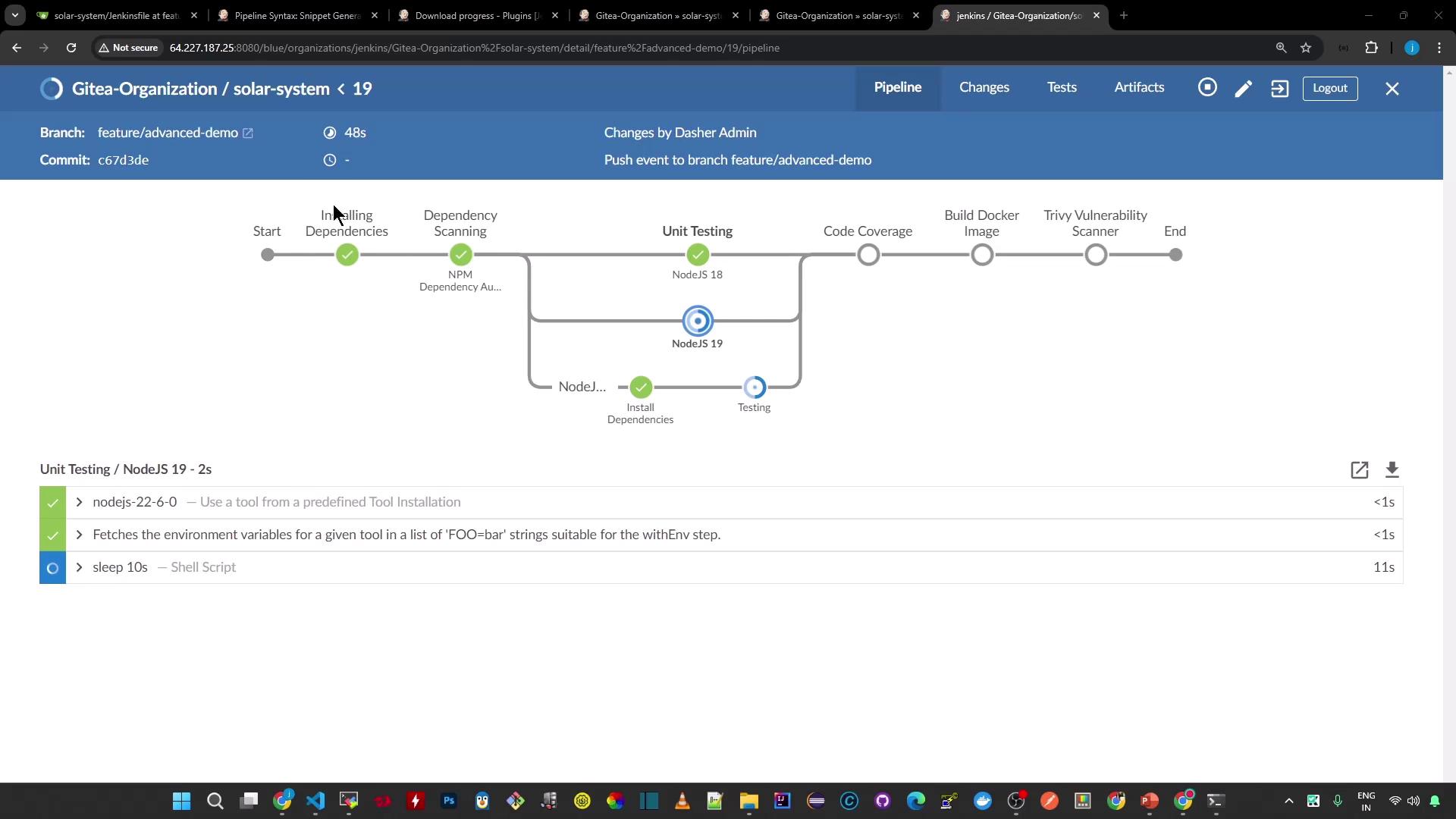Certified Jenkins Engineer
Pipeline Enhancement and Caching
Demo Invalidate Cache
In this guide, we’ll walk through how to automatically invalidate and recreate your build cache in Jenkins whenever package-lock.json changes. Leveraging the Job Cache Plugin’s cacheValidityDecidingFile option ensures that any update to your dependencies triggers a fresh cache, keeping your builds both fast and reliable.
Prerequisites
- A Jenkins instance with the Job Cache Plugin installed
- A Git repository named
solar-systemchecked out on your Jenkins agent - Node.js and npm configured on the build agent
1. Install a New Dependency
First, switch to the solar-system repository on your local machine or CI checkout:
cd ~/solar-system
Then install the localtunnel package:
npm install localtunnel
This updates both package.json and package-lock.json:
➜ npm install localtunnel
added 7 packages, and audited 366 packages in 2s
45 packages are looking for funding
run `npm fund` for details
10 vulnerabilities (1 low, 4 moderate, 5 high)
Note
Changing or adding a dependency always modifies package-lock.json. We’ll use this file’s hash to decide cache validity.
Commit and push your changes to trigger the Jenkins pipeline:
git add package.json package-lock.json
git commit -m "Add localtunnel dependency"
git push origin feature/advanced-demo
2. Observe Cache Invalidation in Jenkins
Navigate to your Jenkins job’s Installing Dependencies stage for build #19, and search the logs for “cache”:

Build #19 Logs (Cache Miss)
17:06:25 [Pipeline] sh
17:06:25 + node -v
17:06:27 [Pipeline] sh
17:06:27 + npm install --no-audit
17:06:27 added 7 packages in 2s
17:06:27 45 packages are looking for funding
run `npm fund` for details
17:06:30 [Pipeline] stash
17:06:30 Stashed 5131 file(s)
17:06:30 [Pipeline] }
Because package-lock.json changed, the Job Cache Plugin calculates a new hash, decides the existing cache is outdated, skips the restore, and then stashes all files to create a fresh cache.
Prior Build (Cache Hit)
node -v
v22.6.0
npm install --no-audit
# up-to-date (restored from cache)
Cache Invalidation Details
17:06:30 cacheValidityDecidingFile(s) - actual file(s): /var/lib/jenkins/workspace/solar-system_feature_advanced-demo/package-lock.json
17:06:30 hash does not match - cache outdated
17:06:32 Creating cache...
17:06:32 got hash 5a1549c4b8a6882fddf4b8ef16c2 for cacheValidityDecidingFile
17:06:32 Cache created in 2179ms

3. Cache Behavior Comparison
| Scenario | Cache Restored | Action Taken |
|---|---|---|
package-lock.json unchanged | Yes (cache hit) | Skip install, restore cache |
package-lock.json modified | No (cache miss) | Reinstall & stash new cache |
Conclusion
By configuring the Job Cache Plugin’s cacheValidityDecidingFile to point at package-lock.json, Jenkins automatically invalidates the cache whenever your dependencies change. This ensures that you always rebuild on the latest set of packages, while still benefiting from caching on subsequent runs.
Links and References
Watch Video
Watch video content
Practice Lab
Practice lab